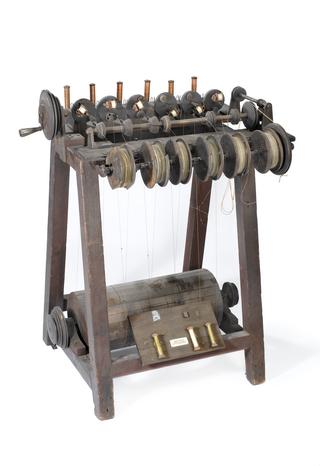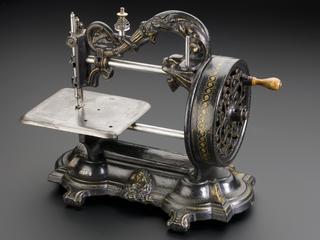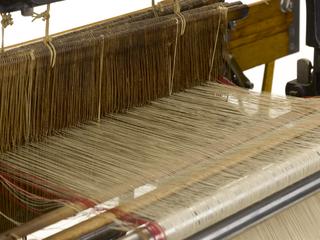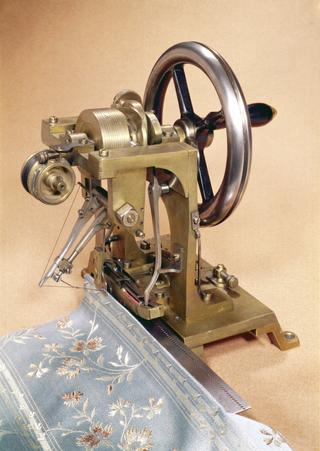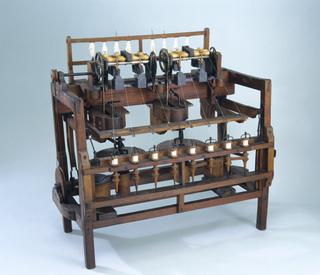
Portable spinning wheel
- Made:
- 1745-1790 in Shrewsbury
- maker:
- James Webster James Webster
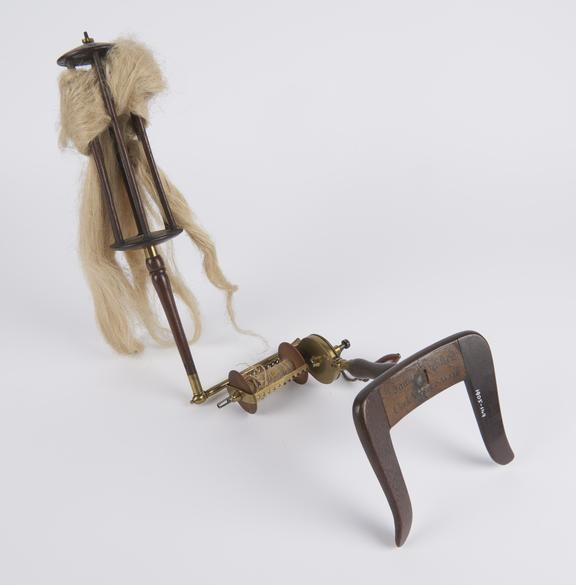
Portable spinning wheel, labelled 'James Webster, clockmaker, Salop', Mardol, Shrewsbury, England, 1745-1790.
This is a portable form of the flax-spinning wheel made by James Webster (f. 1768), of Mardol, Shrewsbury. Webster (b. 1714) established a clock-making business in Mardol in 1740, and worked until 1799. The distaff and bobbin are supported on a turned spindle in a wooden base with two horns by which it could be strapped to the waist, so that the machine could be used by a person walking. The distaff can be clamped at any angle by a wing nut. The flier is driven by a handle and gearing in the ratio of 6:1, and the retardation in speed of the bobbin necessary to put in the twist is obtained by the friction of a cord over the bobbin, wound round a peg in the spindle.
Details
- Category:
- Textiles Machinery
- Object Number:
- 1905-149
- Measurements:
-
overall: 400 x 150 x 200 mm
- type:
- girdle spinning wheel
- credit:
- Chadwick Museum
